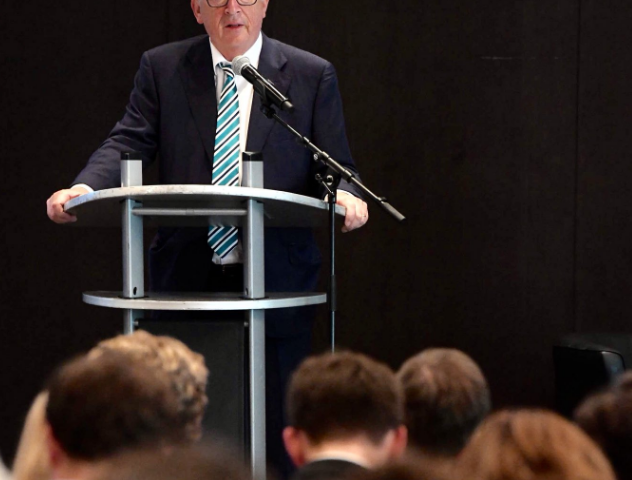
Πλαστικά αντικείμενα μιας χρήσης: νέοι κανόνες της ΕΕ για τη μείωση των θαλάσσιων απορριμμάτων
May 29, 2018
Commission authorises five Genetically Modified products for food and feed use
August 3, 2018The US announced that starting on 1 June 2018 it will impose additional duties of 25 % and 10 % respectively on imports of steel and aluminium from the EU.
President of the European Commission, Jean-Claude Juncker said: “I am concerned by this decision. The EU believes these unilateral US tariffs are unjustified and at odds with World Trade Organisation rules. This is protectionism, pure and simple. Over the past months we have continuously engaged with the US at all possible levels to jointly address the problem of overcapacity in the steel sector. Overcapacity remains at the heart of the problem and the EU is not the source of but on the contrary equally hurt by it. That is why we are determined to work towards structural solutions together with our partners. We have also consistently indicated our openness to discussing ways to improve bilateral trade relations with the US but have made it clear that the EU will not negotiate under threat. By targeting those who are not responsible for overcapacities, the US is playing into the hands of those who are responsible for the problem. The US now leaves us with no choice but to proceed with a WTO dispute settlement case and with the imposition of additional duties on a number of imports from the US. We will defend the Union’s interests, in full compliance with international trade law.”
Commissioner for Trade Cecilia Malmström said: “Today is a bad day for world trade. We did everything to avoid this outcome. Over the last couple of months I have spoken at numerous occasions with the US Secretary of Commerce. I have argued for the EU and the US to engage in a positive transatlantic trade agenda, and for the EU to be fully, permanently and unconditionally exempted from these tariffs. This is also what EU leaders have asked for. Throughout these talks, the US has sought to use the threat of trade restrictions as leverage to obtain concessions from the EU. This is not the way we do business, and certainly not between longstanding partners, friends and allies. Now that we have clarity, the EU’s response will be proportionate and in accordance with WTO rules. We will now trigger a dispute settlement case at the WTO, since these US measures clearly go against agreed international rules. We will also impose rebalancing measures and take any necessary steps to protect the EU market from trade diversion caused by these US restrictions.”
Background
The US measures affect EU exports worth €6.4 billion in 2017. While striving to avoid today’s situation, the EU has been preparing over the last months and stands now ready to react to the US trade restrictions on steel and aluminium in a swift, firm, proportionate and fully WTO-compatible manner.
The EU will launch legal proceedings against the US in the WTO on 1 June. This was decided by the College of Commissioners on 29 May and Member States were consulted on the same day. The US measures are primarily intended to protect the US domestic industry from import competition, clearly at odds with WTO rules. In addition to the WTO dispute settlement we are launching against the US measures, we have also coordinated action in this field with other affected partners.
As regards the US tariff measures, the EU will use the possibility under WTO rules to rebalance the situation by targeting a list of US products with additional duties. The level of tariffs to be applied will reflect the damage caused by the new US trade restrictions on EU products. The list of US products is ready: it was consulted with European stakeholders and supported by Member States. The EU notified its potential rebalancing to the WTO on 18 May and, in line with the Organisation rules, could trigger them 30 days later. The Commission will now in coordination with Member States take a formal decision to proceed with the rebalancing.
The Commission is determined to shield the EU steel and aluminium markets from damage caused by additional imports that might be coming into the EU as a result of the closure of the US market. An investigation towards possible imposition of safeguard measures on steel was launched on 26 March. The Commission has nine months to decide whether safeguard measures would be necessary. This decision could also be taken much earlier in the proceedings, if the investigation confirms the necessity for swift action. The Commission has also put in place a surveillance system for imports of aluminium to be prepared in case action will be required in that sector.
More information here.


